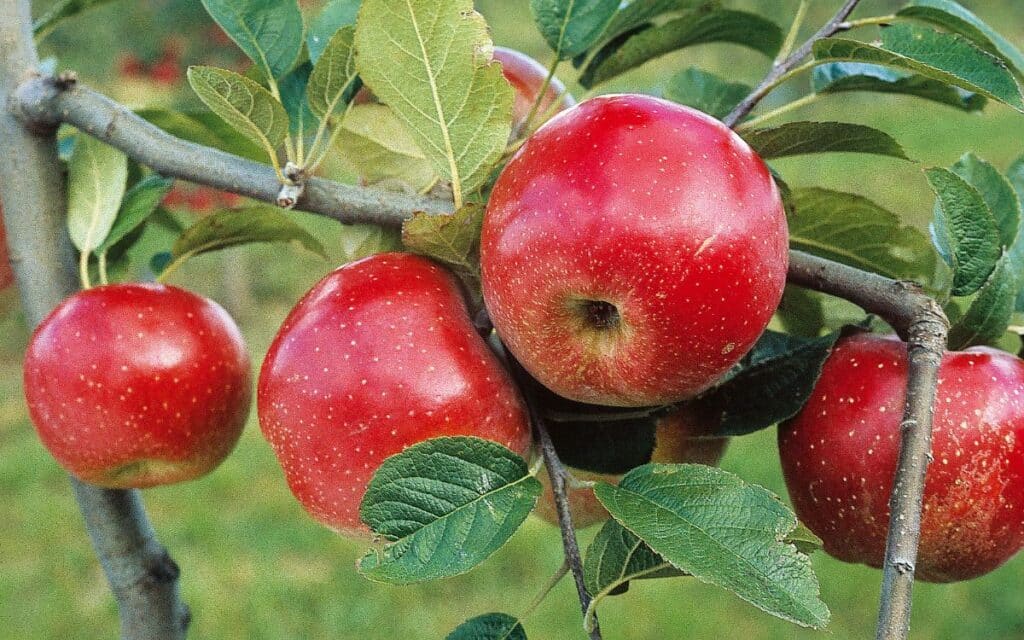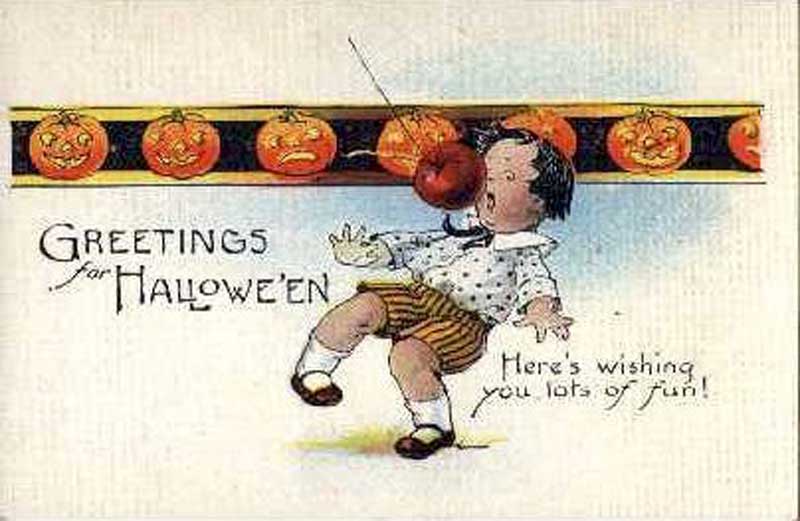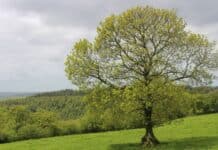Today, 21 October, is Apple Day! Let’s take a look at the hidden mysteries of apples, and the fascinating folklore and myths that have shaped the fruit’s symbolism in British and Irish cultures.

When you bite into a crisp apple, do you ever wonder about the deeper meanings and folklore attached to this ubiquitous fruit?
Probably not.
But apples have been more than just a source of nourishment in Britain and Ireland over the millennia.
Apples have taken on roles that range from magical talismans to objects of temptation.
Let’s take a look at some of the customs and folklore surrounding apples.
Apples in British and Irish Folklore
With evidence of apple cultivation going back thousands of years, the fruit has had ample time to seep into the cultural and spiritual fabric of the regions.
From the story of the apple of discord in Celtic mythology to the apple as a symbol of immortality in Druid rituals, apples have represented various concepts.
The Apple as the Fruit of the Otherworld
In Celtic mythology, apples are often linked to the Otherworld, a realm of eternal youth and beauty. Consuming these mythical apples granted immortality and eternal happiness.
Apples in Avalon
According to Arthurian legend, Avalon, the island of the blessed, was known as the “Isle of Apples”. It was here that King Arthur was taken to heal his mortal wounds.
Bobbing for Apples
The Halloween tradition of bobbing for apples has its roots in a Celtic New Year’s celebration, which believed the apple could predict future relationships.

Apple Wassailing
This is a traditional English ceremony where people sing and drink to the health of apple trees to promote a good harvest. The ritual often involves soaking bread in cider and placing it on tree branches.
Apples and Divination
In old Irish traditions, apples were used in various forms of divination. For example, peeling an apple in one continuous strip and tossing it over one’s shoulder could reveal the initial of a future spouse.
St Brigid and the Apple
In Irish folklore, St Brigid miraculously created an apple tree from the ground to feed the hungry, emphasizing the apple as a symbol of abundance and care.
The Last Apple
In certain British tales, the last apple left on the tree is never picked, as it belongs to the spirit of the orchard, a concept often linked to the Green Man or Jack-in-the-Green.
Apple Day Celebrations
As we said before, 21 October is marked as Apple Day in the UK, celebrating the fruit’s diversity and importance. Traditional games and folklore tales are often part of the festivities.
The Sinister Side
In some darker tales, apples serve as a tool of mischief and deception, such as in the famous tale of Snow White, where the apple acts as an agent of near-death.
The Adam’s Apple
Though not directly British or Irish, the term Adam’s Apple, used to describe the lump in the human throat, has been deeply influenced by Judeo-Christian mythology, which has been broadly integrated into British and Irish culture.
Apples in British and Irish folklore symbolize a range of complex ideas, from eternal life to temptation, from abundance to mysticism.
The fruit’s role in these cultural narratives highlights its enduring significance, and it continues to fascinate us with its dual nature as both a simple nourishing food and a complex symbol rich in history and meaning.
Have we missed your favourite Apple customs or superstitions? Tell us in the comments section below!







